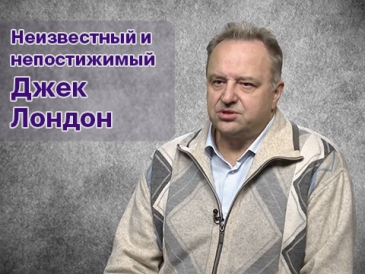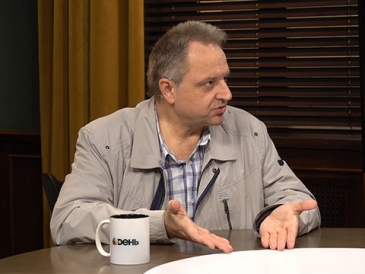These days, the economist’s profession is among those in greatest demand and, indeed, one of the most widespread. In almost all countries, the body of economists ranks among the most numerous. Furthermore, economics as a science has grown new branches and become more complicated. What in this situation is the role and place of the economist in present–day society, and what are the ways and means for him to realize his professional and creative potential? Let me try and examine these issues on the strength of personal experience, the objective trends in world economy, and the subjective perception of the shaping environment.
Varieties of economic activity
Today, practically every economist (a graduate specialist with at least the minimum of relevant knowledge) faces a choice between three clearly outlined circumscribed fields of activity: academic science, civil service, and commerce. The choice he or she makes automatically defines the professional creed, and the existence of these alternatives is immanent in the nature of economics. Look at the matter more closely.
The history of economics shows that every eminent economist swung to and fro between pure science, civil service, and business. Many tried their hand at all three, applying themselves to one or the other at different periods of life. This is natural, because economics as a science resulted from an interlacement of problems of daily life, matters of production and trade, and the needs of national governments. As Karl Marx observed, the early economists were mostly “businessmen and statesmen” [1, p. 12]. By now, each of the three afore mentioned fields has become independent and often entirely autonomous, thus complicating the economist’s subjective choice. In other words, once one of the three roads is taken, it becomes increasingly difficult to pass over to another. This is doubly so because science, the civil service, and commerce have pros and cons which, in effect, are not at all simple to weigh against each other.
Take business first. The economist’s general and specific knowledge of economic processes offers a fairly good chance of rapid adaptation to any concrete private enterprise. Employment is easily enough found in highly paid structures–banks, insurance companies, auditing, commercial and financial firms, industrial corporations, etc. Work in these institutions usually yields useful experience and offers a chance of striking out on one’s own and amassing substantial capital, which, in turn, opens up opportunities for satisfying vital and creative desires. Besides, working in the private sector predetermines considerable personal and professional freedom and a dynamic way of life, which is an unquestionable blessing. On the other side of the coin is the overly tense rhythm, the instability of one’s position, and various persistent hazards.
The main advantages of civil service are favorable career opportunities and opportunities, among others, of winning public prominence, gaining substantial power, ample monetary rewards, and substantial social benefits. The large selection of prestigious bureaucratic niches offers interesting and creative work in the ministries of finance, economics, foreign affairs, foreign trade, the Central Bank, the Tax Service, Tax Police, etc. Among other unquestionably positive factors are the intensive professional contacts that lead to various personal ties and involvement in projects and functions that give a pleasant sense of association in important affairs. Furthermore, as a rule, civil service makes for stability in life and for the maximum social security. The main negatives include a relatively modest salary, routine operations in low–level offices, the dependence of one’s career on the political situation and the whims of superiors, rigid regulations and red tape, and, as a result, lack of personal freedom.
Among the positives of science are the following:
– Scientific activity is always in search of the truth conjugated with a high degree of objectiveness in perceiving and assessing the surrounding world. Wearing blinkers is obviously harmful, while the ability to see the world with wide–open eyes makes the individual more vital because, as we know, knowledge is power.
– Scientific activity stimulates the maximum intellectual self–development and self–improvement. Accumulation of intellectual capital means continuous growth of the individual’s adaptability, and makes for more thorough and speedy assimilation of ongoing events and adoption of the right decisions.
– Serious scientific research presupposes a high degree of creativity. Routine work leads to degeneration of the personality, while creative impulses make life worth living.
– Profound immersion in scientific activity opens up the romance and distinctiveness of the specific discipline. The attractions of science are expressed in its specific metalanguage, exotic terminology, intricacies of logic, relevant technical equipment, scientific discussions, etc.
– Scientific activity has its aesthetic side. In science, beauty is embodied in the impeccable lines of logic, the elegance of a constructed model, the crispness of a recorded formula, the grace of the scientific style, and the wealth and succulence of the language. All this is a source of positive emotions that lengthen and embellish the scientist’s life.
– Scientific activity is a priori international and makes for broad horizontal contacts, imparting richness and dynamism to the researcher’s work. Human communication (including professional) is one of the greatest achievements of civilization and makes life more harmonious. Aside from personal contacts (seminars, conferences, symposia, etc.), science furthers indirect contacts (study of literature, correspondence) which are within reach of nearly all members of the scientific community.
– Research presupposes a high degree of integration in the common endeavor and fashions powerful vertical ties. The scientist is in the midst of a single scientific process: the results obtained are based on earlier achievements, and are, in turn, the stepping–stone to further search and fresh discovery. The sense of involvement in the construction of the contemporary and truly staggering scientific edifice connects the individual to a common source of energy and imparts strength for further advance. Besides, involvement in the common cause of science shapes specific benefactor–beneficiary (or teacher–pupil) relations between generations. Continuity arises between generations and a mutual creative enrichment occurs between the old and young strata of the scientific community.
– Every scientific discipline applies itself to finding laws; that is, relationships between essences. The latter are immutable (or at least highly stable); all knowledge about them is unchanging and consequently everlasting from the point of view of value. Hence, the scientist’s endeavor to reach down to the substance of complex phenomena is, in its way, an exploit. As a rule, society responds to signal success by lavishing fame and honor upon the scientist, whose name is inscribed in golden letters in the annals of science and whose ideas and discoveries are used by later generations. A name–science emerges in which theorems, equations, inequalities, geometric curves, methods, algorithms, theories, doc trines, concepts, and methodological paradigms are given the names of their makers. As Arthur Schopenhauer put it, fame is won in two ways: by extraordinary acts and by extraordinary creations. Certainly, scientific results belong among the creations, which possess serious advantages over acts, namely, acts pass, creations live on [2, p. 94]. It would be wrong to think, however, that “working with eternity” is given to but a few lucky devils. At present, when most sciences make active use of the modeling method, nearly every researcher can gain access to immortality. Obviously, this opportunity and its appreciation impart special wisdom and make the individual happier.
These advantages relate essentially to the soul and spirit. Work in science also has such simple advantages as an orderly life style, maximum personal freedom, and absence of any serious responsibility. Among the negatives is the rift between the process of obtaining a scientific result and its application in practice, a low salary, tiring intellectual labor, and the scientist’s vulnerability as competition escalates and the general demand for science declines. The above is true for practically all disciplines, but some of the points are especially true in reference to economics.
Politics, which V.I. Lenin described as a concentrated expression of economics, is the fourth variety of economic activity. Every politician does, indeed, operate in the name of the economic interests of specific social groups and is in substance immersed in complex economic problems needing special professional training. Yet politics is secondary to private enterprise, the civil service, and science. It is not professionally independent, and draws talent from business, the civil service, or science. Thus, these spheres of economic activity are, among other things, a sort of staging area for entering politics. The opportunities they offer for it are, of course, different. Still, all three are a real source of reinforcements for the political elite.
The fact that politics is made in big business is at the root of the secondary nature of political activity and, consequently, of a political career. In this sense, politicians are mere puppets of financial and industrial tycoons. This is true for all times, nations, countries, and continents. It is, therefore, no simple matter to pick one of the spheres of economic activity examined above. To find which is preferable, let us turn to some trends which are prevalent in each of them today.
Current trends in science, civil service, and business
The globalization of all aspects of public life has resulted in many professional spheres setting entirely different demands than before on those who enter them. This applies equally to economics as a science, to commerce, and to the civil service. What changes in quality are we witnessing?
Take the civil service first. Today, this sphere is what may be described as excessively determinate. As a rule, the civil servant’s career no longer depends on the individual’s breadth of vision and ability to find profound solutions, which have indeed become needless. All of the solutions are known; the only problem is to com bine them correctly and to obtain the right administrative results at the right time. The other point is that the individual is increasingly inhibited in his choice of rational administrative strategies, which are known in advance and are none too numerous. What is more, the efficiency of most regulative actions depends less on the solutions as such, and more on the ways and means of putting them into effect. This tendency complicates the activity of the concrete official and its objective evaluation, with the result that the individual turns more and more into a tiny bolt of the vast state machinery. It is no exaggeration to say that the most important quality of an official today is discipline.
Take the diplomatic world (including economic diplomacy), whose role has visibly declined. Even the activity of the special services in the setting of their nominal legalization is now rigidly controlled. The most responsible decisions are made collectively by repeated discussion.
The other trend is that the state’s intervention in the natural course of economic development is more and more minimal and of a corrective nature, because excessive bureaucratic activity causes more harm than good today. This regulative liberalism prevents the official from using the potential (including creative potential) that is essentially immanent in the sphere of civil service.
The third tendency typical of officials today is the bureaucracy’s increasing segregation as a caste. The state machinery exacts ever greater demands on its cad res, especially as concerns special training. Many administrations have their own higher schools, admission to which from the outside is restricted. Nearly all the upper echelons of the civil service are filled by people who come from respectable backgrounds and have family connections and backing. In some cases, castes and strata of officials largely isolated from the outside world are formed from the offspring of the same families. This limited access of outside cadres results in a certain degradation of the officialdom.
Far–reaching changes are seen in the sphere of economic science. The chances of making good in this field are gradually vanishing due to the global alterations in society over the past 100 years. The gap between learned scientists and the rest of the people has narrowed. In Newton’s and Leibnitz’s time, someone who had mastered differential calculus and was able to construct formulas was a prodigy in an almost illiterate mass of craftsmen and peasants. Today, no one is surprised by such work, because any schoolchild can manipulate elementary formulas, while a good student is likely to be able to draw new serious mathematical equations. The mystic exaltation of scientific knowledge is no more. Science has become an ordinary occupation. It has grown so much in scale as to become a separate branch of the economy. The numbers of people employed in the industry of new knowledge are so impressive that it is ridiculous to speak of intellectual labor as unique. Today, most truly serious scientific achievements result from the work of many collectives rather than a single individual. This is due to the globality and complexity of scientific tasks, the need to study an immense amount of special literature, and the need to perform diverse parallel scientific operations (formulating the problem, collecting and processing information, constructing models, programing, making content analyses, etc.). Geniuses, as a specific sphere, have dis appeared. To make a truly historic discovery, one must have truly inhuman talent and capacity. Small wonder that the number of people who are ready for such experiments is diminishing steadily.
Another current trend is that economics is turning away from actual life and becoming autonomous. It is withdrawing farther and farther away from practical problems and becoming an entity in itself. In many ways, it is living its own life on the principle of science for science like art for art’s sake. This degeneration follows two interconnected directions. First, many present-day scientific studies are, in fact, needless. Today’s economics is 99% formulas, theorems, diagrams, and theories, most of which are senseless and worthless. Wassily Leontief deplored that owing to the swift development of economics “the emperor is with out clothes” [3]. Another Nobel Prize winner, Maurice Allais, described the hegemony of mathematics in economics as a preponderance of “wild econometrics” [4, p. 98]. As he saw it, we were witnessing a new dogmatic totalitarianism based on abstract a priori concepts divorced from reality, a sort of “mathematical quackery” disparaged by J.M. Keynes [4, p. 97]. Need one wonder why present–day economic thinking across the world is said to be in deep crisis? Some even believe that the many schools of economics are equally false. One other belief is wholly justified, namely, that economic science has nothing to do with real life and is no more than an abstract battlefield where the personal ambitions of learned economists collide.
Second, a body of economists is taking shape that can offer no useful advice either to private firms, governmental structures, or individuals. Today, economics professors of the country’s leading universities are unwanted because of their lack of a useful scientific speciality and constructive knowledge. Candidates and doctors of economics are even compelled to retrain in other fields. In some cases, economists, who are employed in academic institutions, supplement their main occupation and consult for private firms and govemment structures. Even so, this is an exception rather than the rule.
The situation undermines the status and prestige of economics and in no way arouses one to join its ranks. The capacity of economics as a science to satisfy personal ambitions is practically exhausted for the main reason that it is chock–full of outstanding results and great names. There are already nearly 40 Nobel Prize winners in economics, each of whom is a truly colossal figure. Knowledge of the works of just one giant is a formidable assignment for an ordinary scientist, while knowing everything is inconceivable. And to achieve something meaningful, one must lean on the achievements of our great predecessors, for failing this amounts to inventing the wheel all over again. To be sure, the Nobel Prize in economics is awarded every year, and, consequently, in the next 30 to 35 years, the number of winners will double. A normal person will hardly be able to remember all their names, let alone carefully study their works. The glut of information has given rise to a revealing tendency: it is easier to solve a problem all over again than to find the existing solution in the ocean of specialist articles. There is also this point: to win recognition in economics, one must live a long life (Allais, for example, won the Nobel Prize at age 77). This is not surprising. New ideas in economics require thorough insight and long approbation and must be put to the test in practice. These prospects will hardly stir the vanity of those making their choice of interest area.
The main point, however, is that even if someone succeeds through titanic effort to break into the select company of scientific leaders, his or her name and ideas may well be lost or overshadowed amid the multitude of similar names and ideas. At best, the aspirant can count on a definite place in some narrow scientific area among an extremely narrow circle of specialists. And it may be legitimately asked if a commitment for such a ludicrously small result and illusory fame is worth the effort. Regrettably, most people will say no, meaning that science is stripped of one of the most powerful stimuli of progress.
Learned economists often experience an information famine. Called upon to conceptualize processes running their course in life, economics must be constantly supplied with the requisite information. As a rule, however, the information is either late or incomplete. Nor can this be otherwise, for then the armchair economist must become an itinerant newsgatherer. This is also true of research centers and laboratories, as well as universities. In that sense, business and the civil service offer many more opportunities for obtaining information that stimulates scientific economic thought. Nearly all the federal administrations and agencies are, in fact, banks of unique data totally out of the reach of ordinary humans. Ministries and federal subdivisions, for example, gather and process highly interesting information, most of which is for purely intramural use.
Yet it could be initial (or final) food for thought. Besides, the aforementioned government structures are notified of all existing practical problems, which directly impels search (including scientific search) for solutions. In the business sphere, too, technological and economic innovations are continuously generated, many of which belong to the realm of know–how, and are kept under the wraps of commercial secrecy. As a rule, this secrecy is lifted only after the information is no longer scientifically valuable. Furthermore, in some cases, it takes inside knowledge of the situation in a specific business to understand properly the developing tendency and interaction of motive factors. In general, it is the evolution of business that governs all the angles of the development of economic thought. It is clear from the above that economics as a science is not likely to attract an inquisitive and temperamental mind.
Lastly, scientific activity in academic institutions does not, as a rule, offer the due remuneration. Only those who climb to the top rungs of the academic hierarchy in the rich western countries have a decent income. Even there, the scientist’s financial status is incomparable to that of a medium–level manager, broker, or stockholder. A chronic shortage of money compels economists all over the world to seek supplementary earnings, either by adding to their teaching schedule, receiving grants, or associating with private businesses, etc. Even so, all these are half-measures and cannot alter the situation sufficiently. The sacramental question arises again: is it any use writing reams of scientific articles and monographs, making countless calculations, stuffing oneself with useless information, and then going out of one’s way to find supplementary earnings on the side? This outlook can scare away even devoted economics enthusiasts.
By concentrating on the negative aspects of the civil service and economics as a science, I sought to avoid subjective judgments and simply display the unvarnished truth. What are the significant changes in the business world?
First, business (above all its economic divisions) has become more scientific and technogenous. The complication of the system of connections between agents operating on the market exacts higher demands at every level of the commercial hierarchy. Working on the exchange, carrying out credit operations, manufacturing and sales, etc., is inconceivable without a strategy, tactics, and special training. All areas of serious business have a scientific foundation. In the United States and other advanced countries, for example, leading corporations have recently substituted scientific analysis of financial risks by a powerful computer bank for intuitive assessments and trial–and–error methods [5, p. 161]. The technogenous nature of business today is objectively conditioned by the widespread introduction of complex monitoring and communication systems, universal employment of computer technologies, the com plication of financial accounting, an unprecedented expansion of the normative and legal basis of commerce, growth of the scale of economic projects and financial operations, etc.
Second, the globalization and internationalization of business today set higher demands on businessmen. The personnel of transnational corporations, who are active on national markets, must know geography, foreign languages, and the traditions and customs of various countries and nations. Additionally, they must be sociable and communicative. In some cases, personal connections in governmental and private structures are highly desirable.
Third, success in business today is inconceivable without complete dedication. The time–is–money formula is an ever greater imperative. A person who wants to make money must devote all his time to the chosen field. It is hardly possible, as a rule, to combine business with something else. While the tycoons of yester year could afford to sit back and philosophize on the global aspects of economics and even write scientific treatises, the businessmen of today are usually totally deprived of the opportunity. The leisure deficit and the gradual narrowing of the sphere of individual interests tends to degrade the personality and make it more severe, callous, and heartless. Furthermore, it is practically impossible to get rich quick (except by criminal means), for “as droplets fill the bowl, so is wealth gathered gradually” [6, p. 25]. In short, a long spontaneous pursuit of business hardens people, which is no argument in its favor. On the other hand, it may be recalled that according to many religious doctrines, a personality becomes truly harmonious only as a result of certain actions and not through continuous intellectual juggling, which means that only an active and enterprising personality is worthwhile. So, for an economist, business is preferable to civil service and academic science. (Civil service, in turn, holds greater promise for a person with an economic mm of mind than the university.) Business has other advantages as well, which we intend to examine below.
The economist and material wellbeing
Material wealth is one of the main objects of study in economics. Hence, it is only natural to assume that people who are professionally occupied with the phenomenon know everything about it, including how to get rich. Yet even very prominent economists are not all prosperous. There is an English joke to the effect that an economist with nothing in his pocket leaves those whom he gives advice without a penny as well [1, p. 207]. The situation is more ludicrous today. It is probably better to say that the economist is one who knows how to amass wealth but is himself as poor as a church mouse.
As I see it, obfuscating the above collisions in the makeup of an economist who chooses science as his vocation distorts the objective vision of the environment and warps the world outlook. Has the economist, who by virtue of his vocation and the specificity of his profession studies wealth and is expected to promote the prosperity of society, any right to be poor himself? Has the individual who knows all the subtleties of the economic mechanism the right to stand with hand out stretched for alms all his life?
An economist simply must be rich or else he is no economist. England’s business world has this adage, “A real consultant has no problems.” Quite right. A person who does not cope with his own problems cannot conceivably help others solve theirs.
A powerful counter–argument, though, is that wealth is evil. If this is true, wealth hinders creative activity. But is the question all that simple? Turn to the old Hinduist tradition. Pundit Chanaki, a medieval Hindi thinker, wrote that poverty was wicked and lay at the root of all evil: the beggar is lighter than a stalk of grass and the wind does not carry him away, only out of fear he will ask it for alms [6, p. 32].
“Only the rich is called a man and only the rich are revered as men of knowledge” [6, p. 14], Chanaki wrote. “He who does not shrink from amassing wealth, grain, and knowledge will be happy, and he who strives not for virtue, wealth, satisfaction, and liberation leads an absolutely useless life” [6, pp. 25–26]. Some of Chanaki’s utterances are little short of shocking: “He who has no knowledge, repentance, learning, a good place in society, virtue, and kindness is mere cattle trampling the earth in the guise of a human being... He who loses his money also loses his wife, friends, relatives, and servants, but when he recovers his money he also recovers those who abandoned him. Therefore, wealth is doubtlessly the best of relatives” [6, pp. 20, 29]. Typical, too, is Chanaki’s rhetorical question: “What can be more attractive in this world for one who has a loving and virtuous wife, wealth, an obedient son endowed with goodness, and grandchildren born by his children” [6, p. 34]? Chanaki, as we see, proclaims wealth one of the attributes of happiness.
The above quotations unequivocally preach the cult of wealth, and many people, evidently, will think them wrong and cynical. But let me repeat: can one call it fair and normal when an intellectually developed person (as is a good economist) is poor? As I see it, an affirmative reply is still more cynical than the hymn to wealth. Recent sociological studies in the United States show that there is a positive correlation between the intellect and a person’s prosperity: the higher the intellectual coefficient, the more substantial the professional successes and the higher the standard of living [7, pp. 62–63].
Let me mention two more serious arguments in favor of personal wealth. The first is expressed by Chanaki’s rhetorical question, “What beggar has ever attained fame” [6, p. 31]? In our case, this means that to appreciate a scientific idea, the public wants it to come from someone of a certain level of prosperity. This was the path of such great economists as Ricardo and Keynes. By the time the latter published his opus magnum, The General Theory of Employment, Interest and Money, he was sufficiently well known for his economic doctrine to attract the attention of the governments of capitalist countries as well as the academic community [8, p. 9].
The following aphorism is perfectly suited as the second argument: “Knowledge is sustained through use in practice” [6, p. 12]. A theorist divorced from ongoing processes cannot claim prominence in a practical science like economics. All knowledge must be functional, that is, applicable in life. A professor of economics in our trying times must prove his worth in action. Many distinguished economists were wealthy people. Take Ricardo, who made a fortune on state bonds, and whose friends had no reason to complain about his advice where to put their money. Or take Keynes, who made his fortune by clever speculation with foreign exchange. And George Soros, too. An eminent scholar, economist, and honorary doctor of Oxford University, Soros is a great businessman, billionaire, and philanthropist who subsidizes scientific research in many countries of the world.
Lastly, while being a universal measure of the individual’s capacity and public worth, wealth plays an enormous ontological role as well. As compared with science and civil service, business offers more objective criteria of an individual’s merits. Owing to the specificity of economics as a science, it is often hard to pinpoint outstanding achievements in the general mass of tangled and involved theories and models. There are cases in history when brilliant results were subjected to withering criticism and, conversely, cases in which obviously unscientific works brought their makers success. Toadyism, voluntarism, and stupid wilfulness have traditionally flourished among officials. As in science, the criteria of an official’s worth as a person are vague and, what is worse, easily falsified. In business, everything is much simpler. The sole criterion is universal: the income the individual brings to the firm or to oneself. If a business thrives, the person who runs it is a good businessman whether liked or not. In my opinion, this is what attracts ever more people to commercial activity.
In sum, if a true economist must be rich, and a real fortune can be made in commerce alone, the choice must be business. If the occasion arises, the person in question may move to political hunting grounds or take a government position, but the initial choice must be business. Science will not wither, it will become a hobby.
Two interconnected questions remain: how realistic is it to combine professional commercial activity and scientific pursuits at leisure? What is the role of economics as a science in the modem world?
The personality and economics
For most people, business and scientific pursuits are incompatible. Even so, most people fail to obtain results of any importance even if they apply themselves to just one of these spheres. In the modem world, science moves forward only due to outstanding personalities. And for these personalities, combining commerce with civil service and scientific endeavor is nothing out of the ordinary. Ricardo, for example, was an eminent figure in London’s financial world, a major landowner and stockholder, a conspicuous MP, and one of the original promoters of the London Geological Society. As for Keynes, he was chairman of a major insurance company, manager of an investment firm, owner of the weekly Nation, and editor of the most influential theoretical economics publication, Economic Journal. He was also associated with the treasury, a member of the Macmillan Committee on Finance and Industry, deputy of the Chancellor of the Exchequer on the Supreme Economic Council, a director of the Bank of England, a sponsor of the ballet, and an eminent art collector. Finally, he was raised to the peerage. Out of our con temporaries, I could name Allais, who is not only an economist, lecturer at various higher–educational institutions, statesman, and writer of serious works on the history of civilization, but also a brilliant physicist. As Schopenhauer rightly observed, a great heart directs the individual along the path of great accomplishments, and a great head along the path of great deeds [2, p. 94]. Outstanding economists prove that they can combine both of these paths.
Science as a sphere for an economist’s endeavors is no longer independent and no longer more than a stage in life, a sort of stepping–stone to further activity. Universities and research institutes today are basically producers of highly qualified personnel, where young specialists are trained, acquire knowledge, and learn to look at things broadly. Some remain in science for the rest of their lives, and some depart it for good in order to stay in science at a qualitatively different level. Within decades these processes lead to far–reaching changes in the content and structure of economics as a science.
References
1. Anikin A.V. Yunost’ nauki: Zhizn’ i idei mysliteleiekonomistov do Marksa (The Youth of Science: Life and Ideas of Thinkers and Economists Before Marx), Moscow: Politizdat, 1979.
2. Schopenhauer A. Aforizmy i maksimy (Aphorisms and Maxims), Leningrad: Leningrad. Univ., 1990.
3. Leontief V. Ekonomicheskie esse: Teorii, issledovaniya, fakty i politika (Economic Essays: Theories, Studies, Facts, and Politics), Moscow: Politizdat, 1990.
4. Allais М. Ekonomika как пайка (Economics as a Science), Moscow: RGGU, 1995.
5. Pervozvanskii A.A. and Pervozvanskaya T.N. Finansovyi rynok: raschet i risk (Financial Market: Estimate and Risk), Moscow: Infra–M, 1994.
6. Aforizmy mudretsa Chanak’i (Aphorisms of Chanaki the Sage), Moscow: Iamuna, 1996.
7. Zharkovskii М. The Intellect: Standards and Deviations, Chelovek, 1996, no. 6, pp. 62–63.
Official link to the article:
Balatskii E.V. The Economist’s Career in the World Today// «Herald of the Russian Academy of Sciences», Vol. 67, No. 5, 1997, pp. 365–371.









